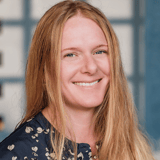Log in or create a free Rosenverse account to watch this video.
Log in Create free account100s of community videos are available to free members. Conference talks are generally available to Gold members.
Summary
This is part 1 of a 3-part series on prioritization, led by Harry Max, author of Managing Priorities: How to Create Better Plans and Make Smarter Decisions. Part 2 | Part 3 Prioritization is a deceptively tricky topic that lurks behind the scenes but informs everything. It’s a fundamental skill for organizations, teams, and ICs, and most people accept that it’s essential, but we are not taught how to do it. You can prioritize almost anything, not just goals, projects, and tasks; values, for example. Our main challenge is finding new methods to reach goals amongst multiple teams with conflicting priorities. There is some good news: there is a repeatable process model. And some approaches are better than others, especially for organizations and teams. This conversation will take the topic to a new level. It will also help you gain a profound new level of clarity about creating better plans and making smarter decisions.
Key Insights
-
•
Prioritization is often confused with personal productivity or time management, but it applies broadly to resource allocation within teams and organizations.
-
•
Top organizations manage prioritization intuitively even without explicit frameworks, by knowing what matters most and making tough trade-offs.
-
•
Priorities are not legitimate until they are properly prioritized by assigning measurable attributes and values to items for comparison.
-
•
Different levels of abstraction in prioritization require framing, such as comparing streams of small tweaks as a whole against large complex projects.
-
•
Having multiple simultaneous priorities is possible; urgency and value profiles differ, so forced ranking is often impractical.
-
•
Prioritization is as much a continuous process involving revisiting assumptions and adapting to new information as it is a one-time decision.
-
•
Clear ownership of prioritization responsibilities is essential to avoid confusion and ensure accountability in decision-making.
-
•
Confusing prioritizing work items with prioritizing customer segments or goals leads to misalignment among product and design teams.
-
•
Overprioritization without clarity leads to 'lack of a priority' problems, causing teams to spread resources thinly and reduce effectiveness.
-
•
Effective prioritization balances setting strategic direction with practical resource capacity allocation and must handle trade-offs gracefully.
Notable Quotes
"There’s a huge gap between theory and practice when it comes to prioritization in complex dynamic environments."
"Priorities aren’t priorities until they’ve been prioritized with attributes and values; otherwise they’re just items."
"It’s actually very hard to prioritize things that are apples versus oranges without framing them similarly first."
"People often confuse prioritization with sequencing – understanding relative importance is one thing, but when and how you do things matters too."
"If all 50 items are said to be important, you can’t do them all at once; starting randomly is better than stalling."
"Most teams have way too many false priority ones – their number one priority is the lack of a priority."
"Ownership means anticipating, observing, orienting, deciding, acting, and monitoring – there has to be a clear owner for these phases."
"Prioritization is as much about saying no gracefully as it is about saying yes to the right things."
"If you spend 15 out of 62 business days prioritizing and still don’t have a clear list, you’re probably prioritizing at the wrong level."
"What am I avoiding? Asking that every day turns out to be a surprisingly powerful prioritization tool."
Or choose a question:
















More Videos

"Frequent, bite-sized training is crucial so staff actually remember how to support customers with disabilities."
Sam ProulxOnline Shopping: Designing an Accessible Experience
June 7, 2023

"We built a career path to make evaluations as fair and consistent as possible across roles."
Ignacio MartinezFair and Effective Designer Evaluation
September 25, 2024

"Stakeholders saw design as a slow-moving black box — exactly what we were trying to move away from."
Sarah Kinkade Mariana Ortiz-ReyesDesign Management Models in the Face of Transformation
June 8, 2022

"Psychological warmth and physical warmth activate the same part of the brain, the insula."
Daniel GloydWarming the User Experience: Lessons from America's first and most radical human-centered designers
May 9, 2024

"Journalists like me are in the business of interrogating reality to get at the truth."
Patrick BoehlerFishing for Real Needs: Reimagining Journalism Needs with AI
June 10, 2025

"UX research teams spend significant time manually analyzing interviews, limiting capacity to focus on higher-value tasks."
Andy Barraclough Betsy NelsonFrom Costly Complexity to Efficient Insights: Why UX Teams Are Switching To Voxpopme
September 23, 2024

"User-centered design methods can be used at every stage of policy making, from intention setting to evaluation."
Alexandra SchmidtWhy Ethics Can't Save Tech
November 18, 2022

"Our job as design teams is to teach others what we do, not to feel insecure about sharing."
Louis RosenfeldDiscussion: What Operations can teach DesignOps
November 6, 2017

"AI decision-making on behalf of billions of people isn’t just scary; it’s terrifying and dangerous, so ethics must be embedded."
Mitchell BernsteinOrganizing Chaos: How IBM is Defining Design Systems with Sketch for an Ever-Changing AI Landscape
September 29, 2021

















